Standard Chemical Company
The Sawmill
Pages
Background of Standard Chemical Company, LimitedThe SawmillThe Lumber Produced in South RiverThe Company RailroadThe Logging CampEfficiency and Sustainability of the Lumber OperationsThe Legacy of the Company For South River
Group of Lumber Yard Workers, Standard Chemical Company, South River, circa 1925
Details
The sawmill cut 65 000 logs in 1926 into a tremendous amount of lumber.
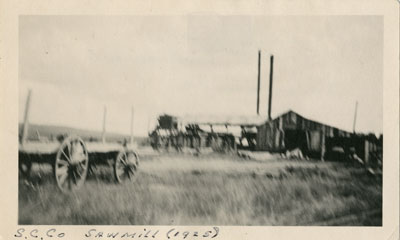
Standard Chemical Company Sawmill, 1925 Details
In 1926, it was estimated that about 20 million board feet of sawlog timber in the area assigned to the company in Laurier Township. After Laurier township, the company planned to log in Ballantyne Township, where the company held 25 square miles of timber rights.
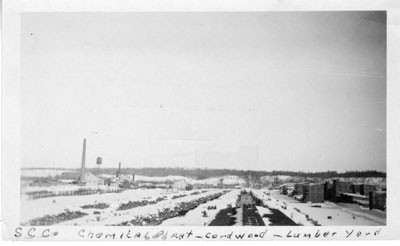
Standard Chemical Company Cord Wood Lumber Yard, circa 1925. Details
The 1920s were a period where the company focused on its more profitable lumber operations. There was still a great amount of cordwood needed for the chemical operations. The company still had a separate cordwood lumber yard, as is seen in this photo.
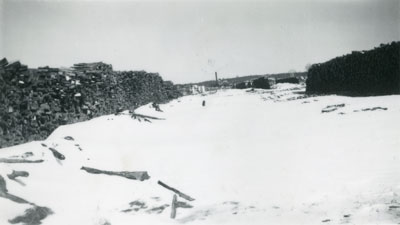
Cord Wood Yard, South River Details
In the 1920s, the company cut about 40 000 to 50 0000 cords of wood each year for the chemical plant. Including another 15 000 cords bought from others.
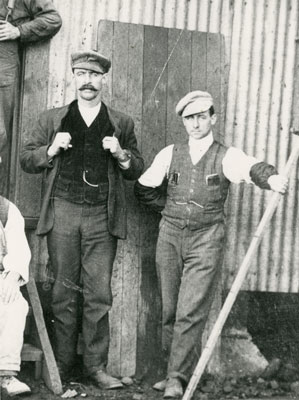
Peter Murdock and M. Grieves, Standard Chemical Company, South River, circa 1925
Details
We can never forget that it was the hard-working people that made the company what it was. The daily wage rates in the sawmill during the summer of 1926 varied depending on the type of work. They ranged from a low of $2.25 to a high of $10, but most were paid around $3.
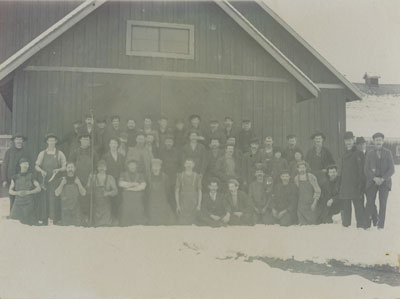
Men Posing for a Photo in the Snow Details
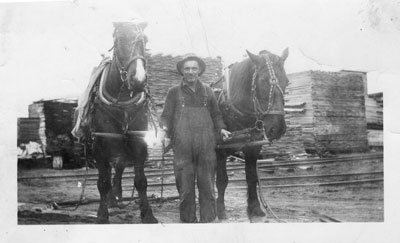
Bill Loney at the Lumber Mill, circa 1930 Details
